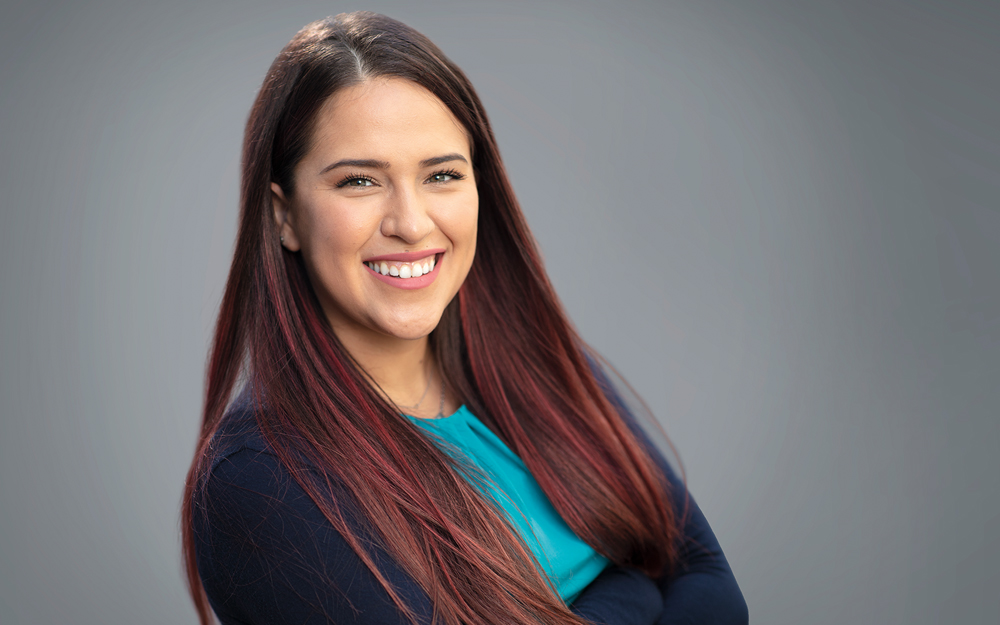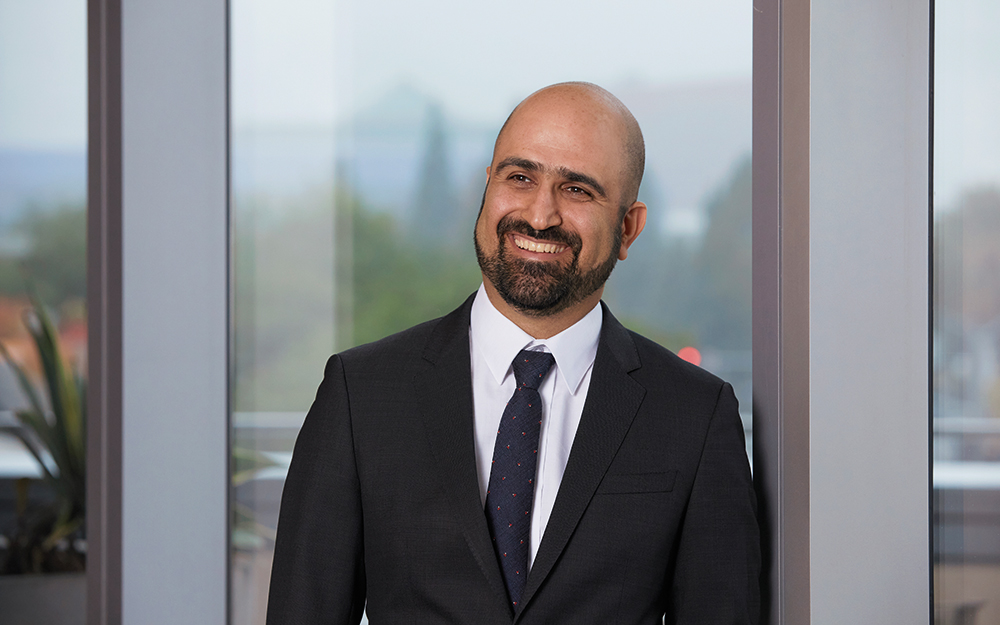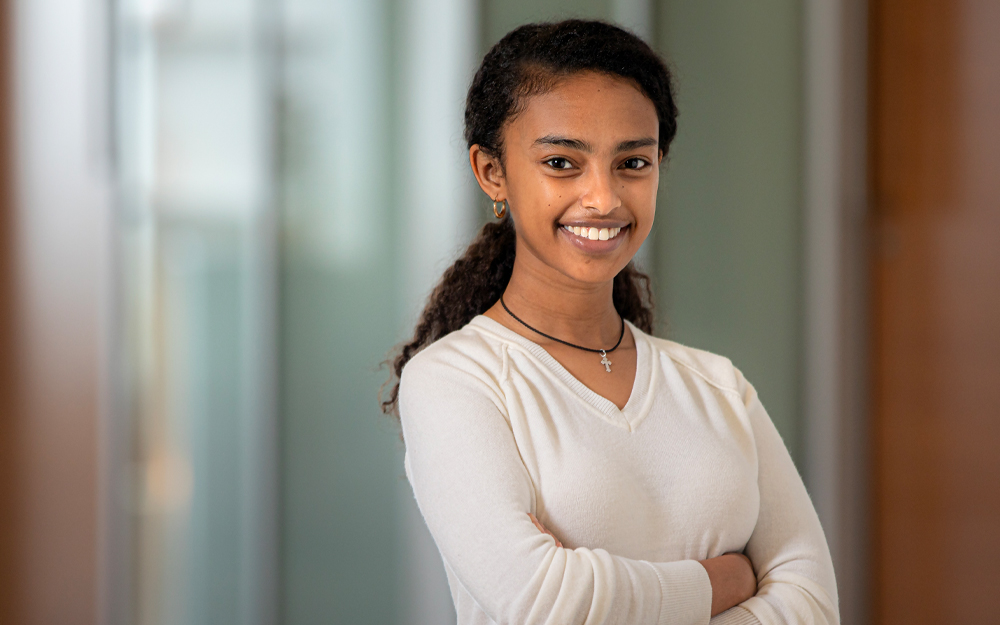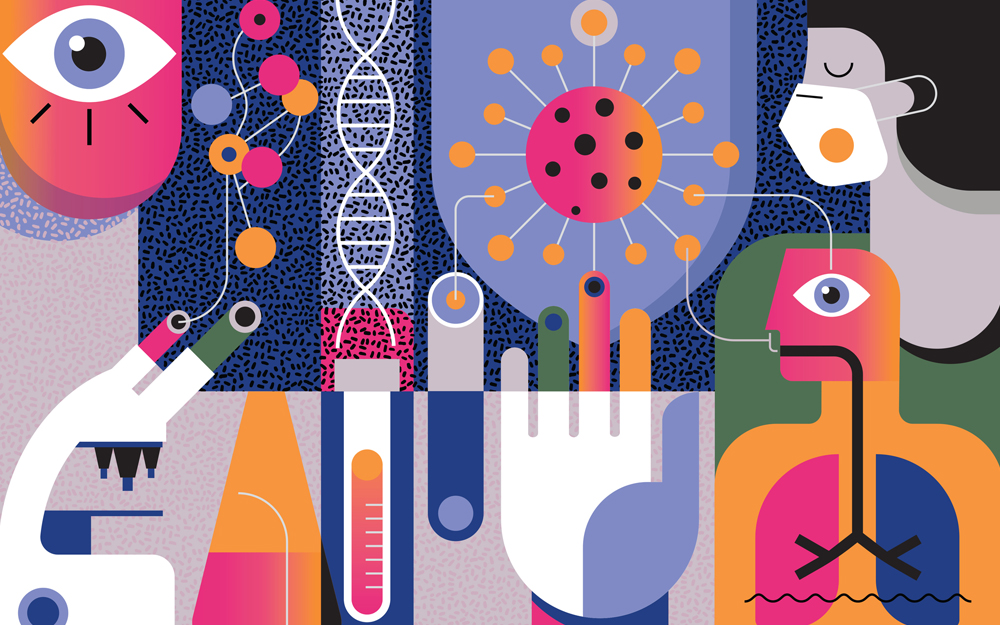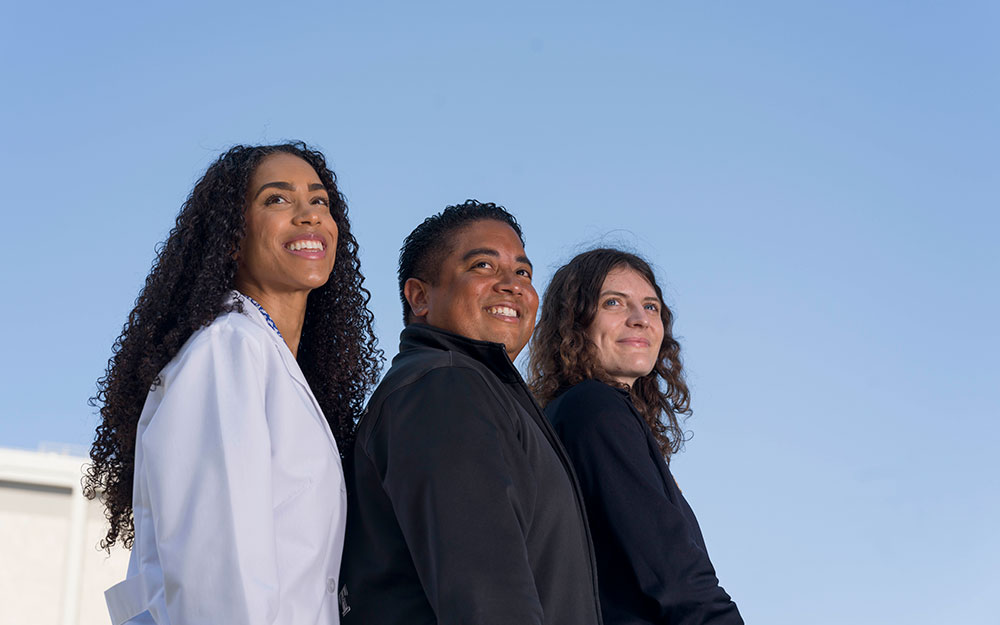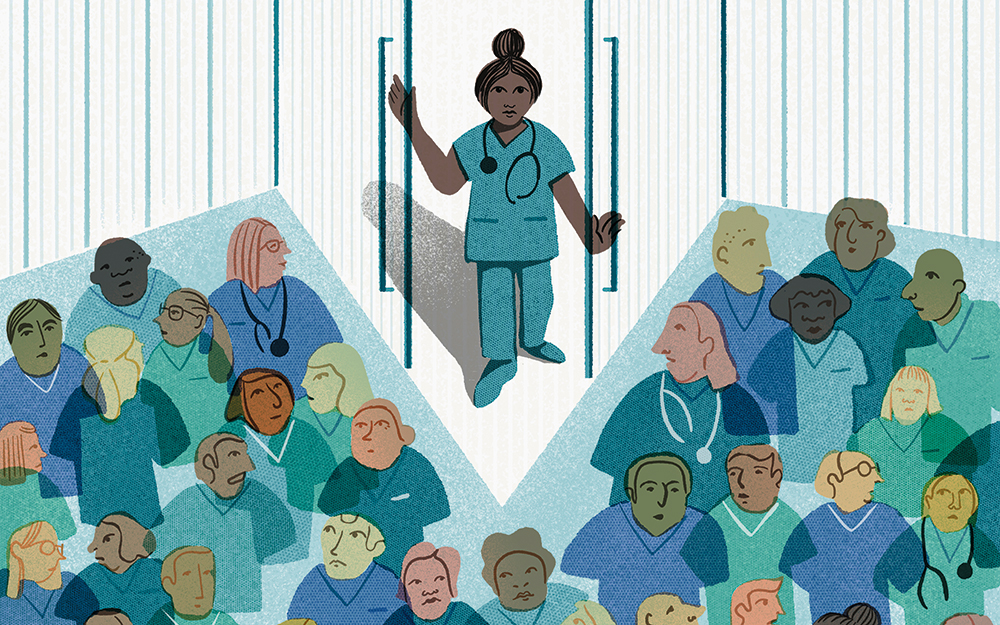Cedars-Sinai and Tsinghua University Collaborate for Impact
Date
January 8, 2024
Credits
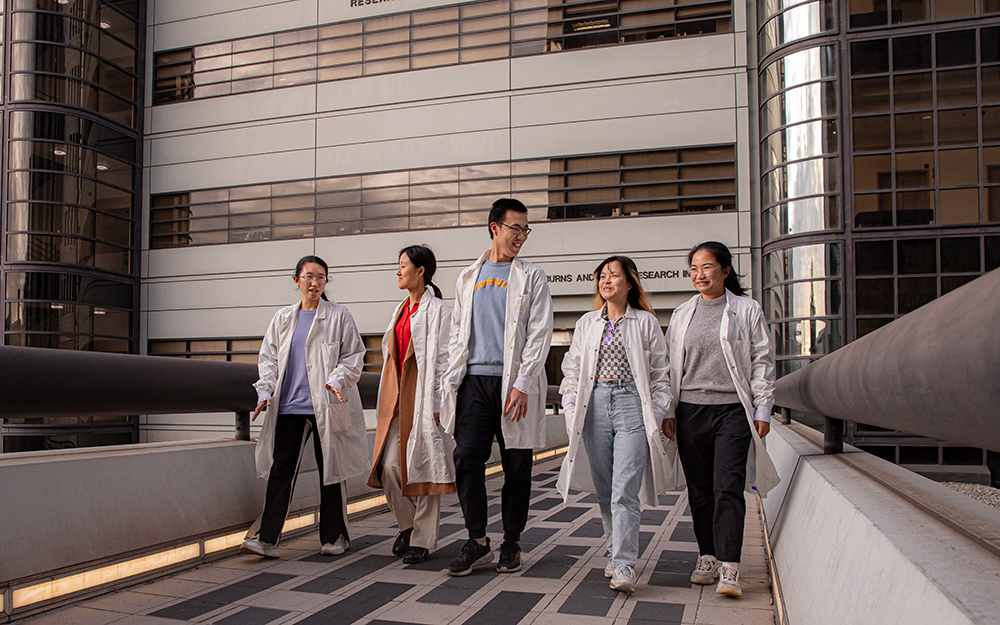
Date
January 8, 2024
Credits
Medical providers featured in this article
In Brief
{{cta-block}}
Medical research is a borderless endeavor: Scientific collaborations that cross countries and continents have the opportunity to hasten breakthroughs and accelerate the pace of discovery. Fostering strong international relationships has helped make Cedars-Sinai a leader in healthcare worldwide, bringing together diverse experts with deep knowledge they can collectively harness to pioneer novel treatments and secure the wellbeing of global communities.
Facilitating this interchange of ideas and interests is at the core of one of Cedars-Sinai’s newest collaborations—an agreement with China’s Tsinghua University that welcomes students from Tsinghua’s medical school to the Cedars-Sinai campus in Los Angeles for two years of intensive research training. The first cohort of five Tsinghua students arrived in September 2023, eager to learn from Cedars-Sinai faculty and to dive into hands-on work.
“Tsinghua is one of the world’s premier universities, ranked among the most elite in engineering,” noted Jeffrey Golden, MD, the Lippman Family Distinguished Chair in Academic Medicine and vice dean of Research and Graduate Education at Cedars-Sinai. “This is a great match for both of us, leveraging the strength of their basic sciences and our clinical and translational sciences. Cedars-Sinai and Tsinghua Medicine are both headed toward a similar destination—building the next generation of talented physician-scientists—and this program provides a roadmap to get there.”
Working side by side with exceptional colleagues from around the world, we are reshaping what’s possible in medicine.”
—Heitham Hassoun, MD, vice president and medical director of Cedars-Sinai International
As the Tsinghua students were getting oriented at Cedars-Sinai, Golden traveled to Beijing to deliver a keynote address at Tsinghua’s medical school and to meet with current students about opportunities at Cedars-Sinai for the mandatory research component of their degree.
“Every medical student at Tsinghua is required to do two years of research, and they have long had the option to do it abroad at places like the University of Pittsburgh and the University of Melbourne,” Golden said. “We were thrilled that the first year we were in the mix almost 25% of the students who left China for their research chose to come to Cedars-Sinai. It’s an indication of the tremendous potential this collaboration offers to stakeholders at both institutions.”
The allure of Cedars-Sinai is what drew Yiling Shen, one of the students currently in the program.
“Cedars-Sinai is among the best hospitals in the U.S. and is famous for its achievements in cancer research, which is my area of interest. It seemed like a perfect place for me to master the skills I’ll need for my career,” she said.
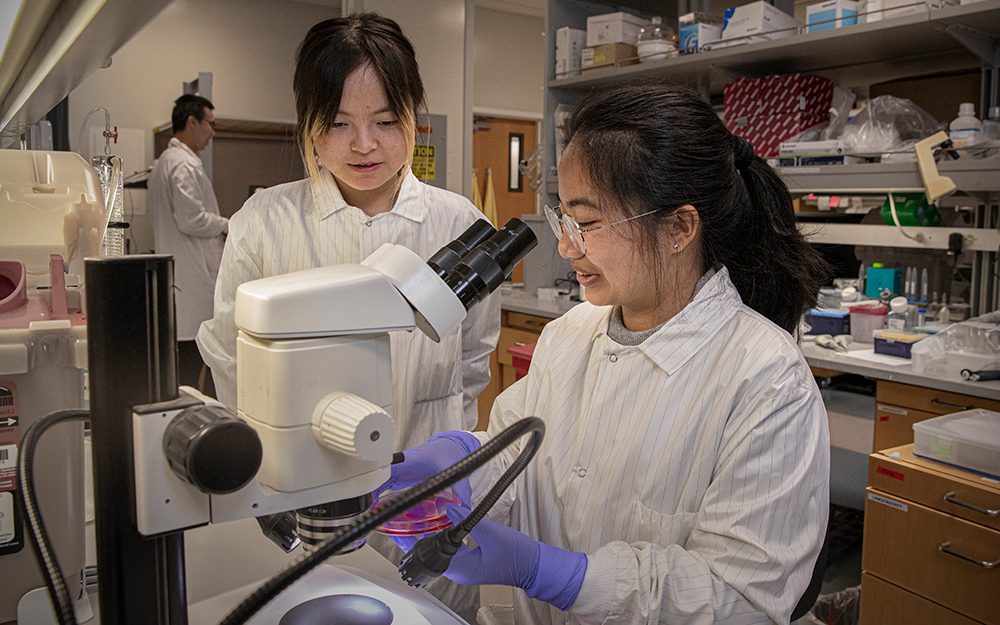
Shen is already putting her new knowledge to work.
“The lab I’m in at Cedars-Sinai focuses on cancer genomics, especially bladder cancer, and I’m starting to do single-cell data analysis and basic experiments,” she said.
Jiayi Yu, another member of the first student cohort, is pursuing her interest in cardiology research under the tutelage of Eduardo Marbán, MD, PhD, the Mark Siegel Family Foundation Distinguished Chair and executive director of the Smidt Heart Institute.
“We’re using engineered regulatory T-cells—a kind of immune cell—for myocardial fibrosis, which is a pathological manifestation of different diseases,” she said. “I’m very excited to be here because Cedars-Sinai excels at translational medicine, and I hope my research will one day result in something that can be applied to clinical therapies.”
For Renning Zheng, the decision to come to Cedars-Sinai paid off early. Guided by Stephen Freedland, MD, the Warschaw, Robertson, Law Families Chair in Prostate Cancer and director of the Center for Integrated Research in Cancer and Lifestyle, his research on the epidemiology of prostate cancer has yielded key insights into associations between insulin, insulin resistance and prostate cancer risk. An abstract of his work was accepted for presentation by the American Urological Association at its annual meeting in San Antonio this coming May.
“Being at Cedars-Sinai has been a wonderful experience for me so far! I think one of the most valuable aspects has been the ability to do research in a hospital setting, rather than at a university; this means I can really focus on the patients who may benefit from my work,” Zheng said.
Plans are underway to expand the collaboration by enabling Cedars-Sinai faculty and students enrolled in Cedars-Sinai’s graduate medical programs to visit and learn from their counterparts at Tsinghua. Cedars-Sinai is also developing a pathway for Tsinghua students to stay beyond their allotted two years in Los Angeles and earn their PhDs at Cedars-Sinai.
“These types of global collaborations are a vital part of what distinguishes Cedars-Sinai at the forefront of scientific innovation,” said Heitham Hassoun, MD, professor of Surgery and vice president and medical director of Cedars-Sinai International. “Working side by side with exceptional colleagues from around the world, we are reshaping what’s possible in medicine.”
That potential for future impact is nearly limitless, according to Yawei Kong, PhD, managing director for Asia at Cedars-Sinai International and a Tsinghua graduate.
“Research is one of the few ways to touch every person in this world,” he said. “By teaming up with Tsinghua and others, Cedars-Sinai can serve as a bridge between research and clinical practice, taking healthcare to the next level and improving countless lives.”
